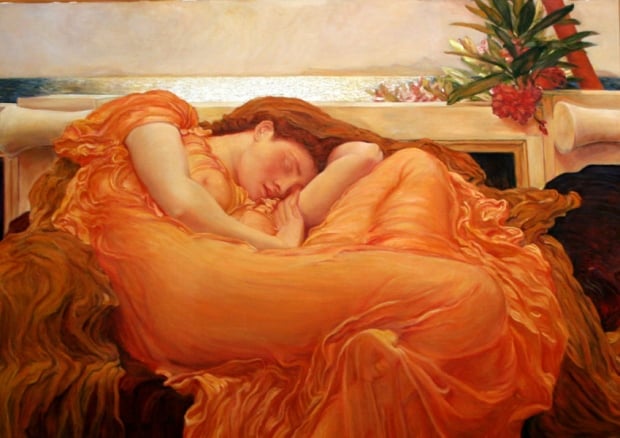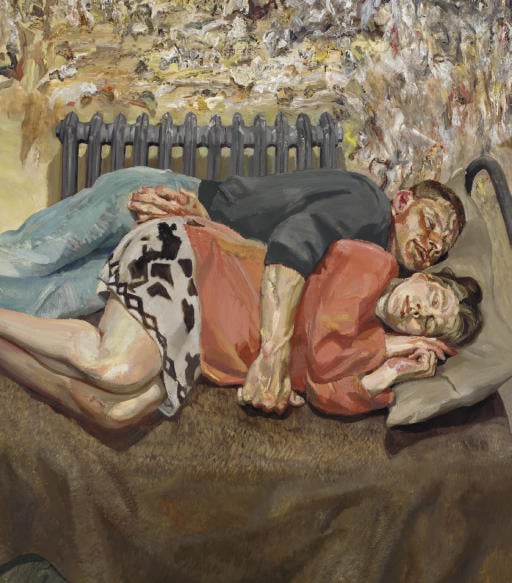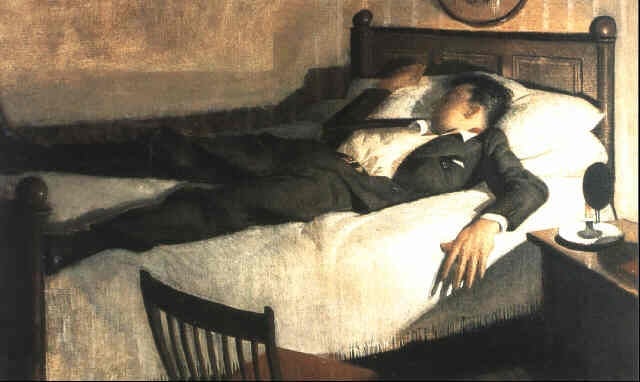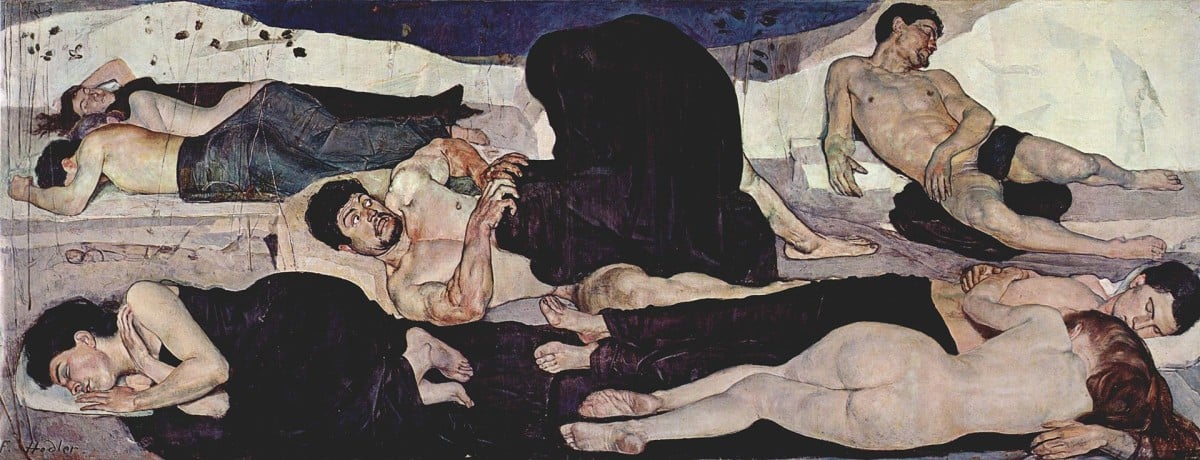Art World
Happy National Napping Day! Here’s 8 Lessons in the Art of Sleep
These artists show us how to sleep extravagantly.

These artists show us how to sleep extravagantly.

Rain Embuscado


Peter Paul Rubens, Two Sleeping Children (1612-13).
Photo: Courtesy of Wikimedia Commons.
In case you missed the memo, the world is celebrating National Napping Day. Naturally, we’d sooner be celebrating the holiday under the covers, but we couldn’t miss the opportunity to round up eight moments in art history that demonstrate the best ways to sleep.
After all, slumbering figures have long served as a subject of inspiration for artists throughout history, and we’d be remiss if we ignored their insights into ideas concerning trust, intimacy, and the extravagance of sleeping in the nude.

Gustav Klimt, The Virgins (1912).
Photo: Courtesy of Wikimedia Commons.
1. To nap extravagantly, as Gustav Klimt correctly illustrates, is to surround oneself with a posse of loving admirers whose sole purpose is to lavish, comfort, and, when desired, even serve as human cushions.

Lucian Freud, Ib and Her Husband (1922).
Photo: Courtesy of Christie’s.
2. But, as providence would have it, such lofty ambitions are often beyond reach for most. So as Lucian Freud shows us, conceding to the arms of a lover satisfies just the same.

Egon Schilee, The Embrace (1917).
Photo: Courtesy of Wikimedia Commons.
3. Clothing, of course, is entirely optional.

Augustus Leopold Egg, The Travelling Companions (1862).
Photo: Courtesy of Wikimedia Commons.
4. It deserves mention that napping isn’t exclusive to the boudoir. Augustus Leopold Egg reminds us that few luxuries parallel the exquisite sensation of sleeping in transit.

William Dobell, Young Man Sleeping (1935).
Photo: Courtesy of artnet.
5. And to those weary souls among us who struggle to undress after a long day, a message: You aren’t alone.

Lord Frederic Leighton, Flaming June (1895).
Photo: Courtesy of Wikimedia Commons.
6. If the bedroom seems miles away, it’s perfectly fine to indulge in the occasional nap on a comfortable chair, especially if one is outfitted in a flowing orange garment.

Ferdinand Hodler, Night (1889-90).
Photo: Courtesy of Wikimedia Commons.
7. Wherever you fall asleep, just be sure you’re comfortable enough to catch those z’s, as Ferdinand Hodler’s sleeping figures were in the late 1800s.

Nicolas Régnier, Fortune Telling Scene (date unknown).
Photo: Courtesy of Wikimedia Commons.
8. And, whatever you do, be sure to sleep in good company.